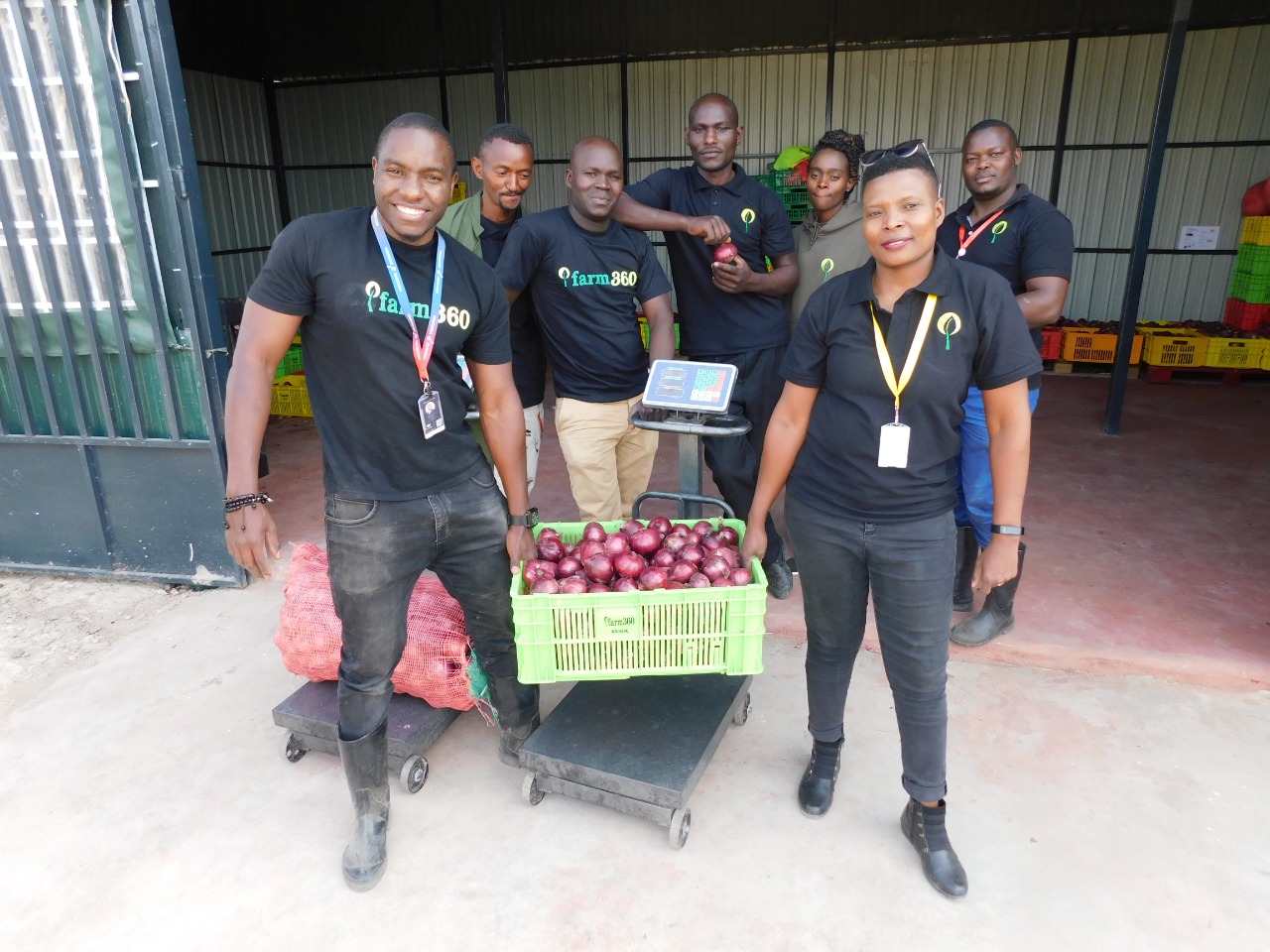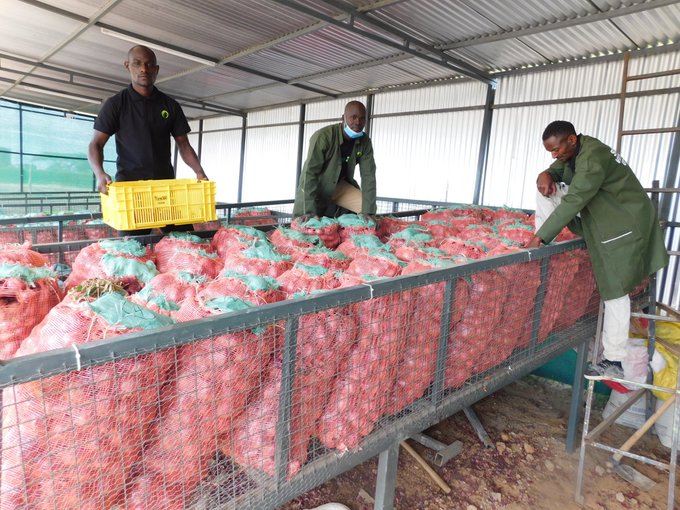
By George Munene
A little over a year after establishing Ifarm360, as a crowdfunding hub that helped pool investment for farmers short on capital, the company's founders were faced with a challenge most Kenyan farmers are all too familiar with: difficulty in obtaining a consistent and ready market.
This set them up with the small task of realising their company’s stated objective: “Structuring Africa's fragmented food supply chain.” According to Milka Owuor, CEO of Ifarm360, In just two months of the pilot scheme the company has built a database of over 2,000 farmers, 300 of whom they work with directly, and a client base of 20 bulk buyers that includes Twiga Foods, Beyond Fruits, Field Fresh, Farm to Feed among others. This has seen them deliver at least Sh5 million of value to farmers and improve their household incomes by 170 per cent.
Every week, they deal in 100-150 tons of onions sourced from Kieni, Nyeri County—Kenya’s largest onion-producing region. 25-50 tons of potato got from the country’s potato hub of Molo in Nakuru County, as well as smaller quantities of carrots.
Key to ifarm’s success is an Amazon-style supply chain that begins with collection centers—two dealing in onions located at Gatarakwa Ward in Kieni and another for potato farmers at Keringet town near Molo. At Gatarakwa, onions are aggregated from various farmers, and basic value addition; drying, curing, grading, and sorting is done. This is a crucial first step, as the firm’s Co-founder and Chief Technology Officer (CTO) Derrick Gakuu explains: “Our buyers have been gladly surprised by the consistent quality of our onions which hold up to any Tanzanian imports.”
Related News: Farmers earn 2x from white onions, as red prices tumble
Related News: Tukalime: innovative service helping 'telephone farmers' farm & market produce
Kenyan farmers have been gradually losing market share to the more popular Tanzanian onion which traders argue is better cured—a month-long process of drying down onions for storage—therefore has a longer shelf life.
The onions are then sorted and graded to match buyer requirements— ”retail chains and mama mbogas demand the premium medium-sized onions; large grade two onions are preferred by institutions; while smaller disfigured onions, classed as grade three are sent to organisations such as Farm to Feed which are focused on waste reduction within the agricultural supply chain,” Gakuu explained.
Buyers often reject up to 60 per cent of onions delivered by farmers; this is a consequence of poor market research on buyer preference and a lack of sorting onions post-harvest. Through the Tanzanian government's investment in these basic last mile value addition benchmarks, they have enabled their farmers to outcompete Kenyan growers.
From the collection centers the produce is moved to the company’s fulfillment hub in Kieni, Nyeri County. Here, the onions are stocked and packaged under optimised storage conditions awaiting client orders which are fulfilled within 48 hours.

“By pooling their yields, our smallholder farmers have greater bargaining power, their earning potential is further strengthened by adding value to their produce and by the quality controls we have instituted. These are all benefits they didn’t enjoy before when selling individually to brokers,” Derrick said.
Related News: Kakamega organisation recruiting Mukombero farmers to supply 100T/year German market
Having unburdened them of any value addition or standardization processes once they offtake their onions, the company’s buyers are a happier lot as well, expressed by a 75-90 per cent approval.
The company is gearing up to get into the watermelon and tomato value chains with the hope of having as transformative an impact on these farmers.
In February of this year, Ifarm Agritech won The World Tourism Organization's (UNWTO) Zero hunger Sustainable Goals Global Startup Competition.
















Comments powered by CComment